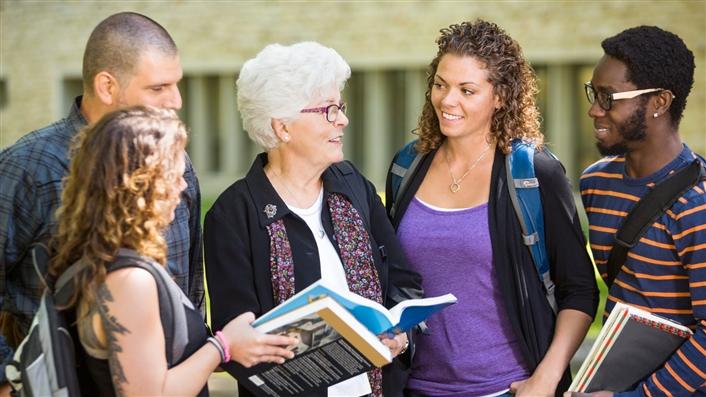iPASS projects at one institution have generated significant persistence gains while creating stronger relationships and communication efficiency for staff with students.

As the Northeast Wisconsin Technical College (NWTC) Integrated Planning and Advising for Student Success (iPASS) journey comes to a close, it's fun to be able to pause and reflect on the work that has taken place. Throughout the past few years, we have expanded our grant work to include five major projects:
- Created a student intake survey
- Began development of a predictive analytics platform
- Started a faculty mentoring program for first-year students
- Redesigned our student communications
- Trained more than 130 staff in developmental coaching
It has been a busy period but has also been some of the most fun I have ever had in higher education.
iPASS efforts have helped us rebuild the entry pathway for students and provide them with more personalized support while in college. In fact, several of these projects have generated significant persistence gains, while others have created stronger relationships and communication efficiency for staff with students. However, there are some significant lessons learned that might be even more meaningful as we move from grant project to sustainable student success efforts.
First, only in the past two years have we really emphasized the inclusion of the student voice in our intervention design. I have personally been guilty of assuming I knew what students needed rather than asking them. Including students in our development of coaching, new-student registration, and intake survey gave us valuable insights into what students want and how they want it.
Second, guided pathways and student success work require a lot of change. We have even been supported by the grant to learn more about change management, which was extremely valuable. As a result, we trained many leaders at the college in change-management principles to help lead our charge. In retrospect, we should have invested more time and energy in training our frontline staff in change principles. As leaders, we are setting strategy and direction, but we could have been more successful if we had given change skills and support to those advisors and other staff who are working directly with students in new and different ways.
Finally, I have been reflecting a great deal on a growth mind-set. We talk a lot about this for students, and it has now become a focal point for new-student orientation sessions. What we haven't talked about enough is a growth mind-set for staff. I believe it is critical for all of us in higher education. The idea that we can continue to grow and learn as employees and that we can master new ways of working with technology or processes is often overlooked. Driving ourselves to learn and develop should be happening in tandem with pushing students in the same direction. As faculty and staff, we must be open to learning and challenging ourselves in new areas that can be uncomfortable — this is where the magic happens!
I could not be prouder of our NWTC iPASS team or the work we have accomplished as a member of both iPASS grants. We've received tremendous support, both financially and strategically, and our students are better for it. In the end, that is the only thing that matters.
John Grant is dean of student development at Northeast Wisconsin Technical College.
© 2018 John Grant.
